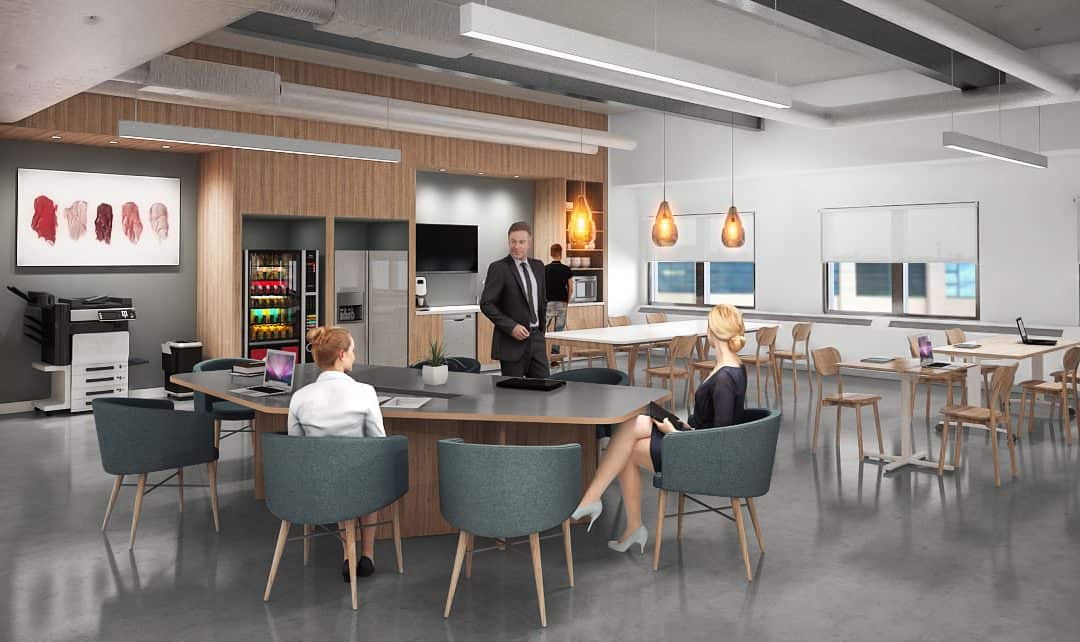The following is sponsored, promotional content. This content is not written by and does not necessarily reflect the views of REM.
The world of business workplaces is going through a revolution – a flexible workspace revolution.
Employee expectations and increasingly advanced technologies are the main catalysts – more employees than ever are demanding agile working options and new technologies are broadening the horizons for how they can operate flexibly.
Conference calls on your mobile, meetings through the cloud and powerful internet connections reaching the most remote locations. It all adds up to higher expectations regarding how flexible businesses should be. But it’s not all about the employee; a flexible working model usually results in higher levels of productivity and employee satisfaction.
A seismic shift
Gone are the days of grey, cold offices with unreliable internet and bad coffee. The flexible workspace revolution has opened the door to much more vibrant, creative, and ultimately, productive, working environments.
IWG, the multinational flexible serviced offices provider with a portfolio of brands including Regus, recently conducted a survey of 15,000 professionals in 80 countries. The outcome? Most respondents said they already view flexible working as “the new normal.”
How it affects the property sector
Through their employees’ shifting and developing preferences, business leaders throughout the world are starting to recognise the benefits of developing a flexible workspace policy.
Research from IWG’s survey shows that 83 per cent of workers across the globe would not be interested in a job if it didn’t offer flexible working. Over half (54 per cent) said that the option to choose their place of work, ie, working remotely, is more important than working for a prestigious company.
Almost a third (28 per cent) of the people surveyed even said they value being able to choose their work location over being given more annual leave.
By matching these preferences, business leaders can retain the top talent and ensure their staff are happy and productive. But to fully accommodate employee demands, businesses need support from property owners and developers.
As it seems offering flexible workspace is now imperative in order to attract and retain talent, this gives the property sector as a whole – including landlords, developers and brokers – a great opportunity to get involved in the flexible workspace trend.
How to join the flexible workspace revolution
For some businesses, it’s not as simple as saying ‘yes’ to joining the new way of working. From the survey, 60 per cent of respondents said that changing workplace culture is a tough hurdle to overcome to successfully implement a new workspace policy. This is especially true of companies with a longstanding, non-flexible working approach. The impact of flexible working on a company’s overall culture also makes it a challenge to implement, with 41 per cent of respondents saying this was a concern for them.
The real benefit of the workspace revolution for landlords and workspace providers comes from supporting businesses that are either on the fence or struggling to make the necessary changes.
Offer property and workspace already fit for the revolution or enable making the shift less arduous and you’ll likely attract and retain more tenants.
There’s already been an increase in property developers and owners wanting to enter the sector to capitalise on this wider business and cultural shift. And considering more than a third (38 per cent) of global businesses have introduced a flexible workspace policy over the past four years, there’s clearly lots more growth to come.
Flexible workspace providers like IWG are at the forefront of helping businesses make this cultural shift, but the property sector has a major role to play as well.
To learn more about how you can benefit from the flexible working revolution, visit regus.ca or call +1 844 241 5515.
With a range of office formats, as well as growing mobile, virtual office, and workplace recovery businesses, Regus is the world’s largest provider of flexible workspaces. Customers include successful entrepreneurs, individuals and multi-billion-dollar corporations. To find out more, visit regus.ca














